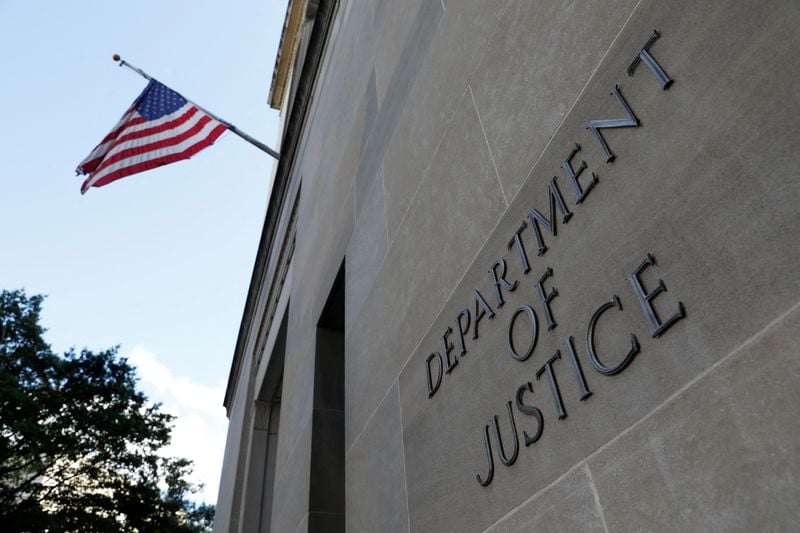SCRANTON- The United States Attorney’s Office for the Middle District of Pennsylvania announced that Fredy Mendoza, age 34, formerly of Hazleton, Pennsylvania, was sentenced by United States District Judge Malachy E. Mannion, to 300 months’ imprisonment for methamphetamine trafficking, and 18 months’ imprisonment for committing pandemic unemployment fraud, to run concurrent with the methamphetamine trafficking sentence.
According to United States Attorney Gerard M. Karam, on July 23, 2021, Mendoza pleaded guilty to conspiring with several other individuals to distribute and possess with intent to distribute between 5 and 15 kilograms of methamphetamine in the Hazleton area between October 2019 and July 2020 and laundering between $40,000 and $95,000 in drug proceeds. He also pleaded guilty to distributing and possessing with intent to distribute over 50 grams of methamphetamine on December 9, 2019.
Mendoza also pleaded guilty to committing pandemic unemployment fraud while incarcerated and awaiting trial on the federal narcotics charges. The Pandemic Unemployment Assistance (PUA) program was created by the March 2020 CARES Act, as part of the United States government’s efforts to mitigate the impact of the COVID-19 pandemic on the public’s health and economic well-being. The PUA program was designed to provide unemployment benefits to individuals not eligible for regular unemployment compensation or extended unemployment benefits.
Mendoza pleaded guilty to conspiring with his codefendant, Christina Covey, formerly of Drums, Pennsylvania, to file false PUA applications on his behalf and for another federal inmate. The applications sought unemployment benefits for both inmates by claiming that they were laid off because of the COVID-19 pandemic and available to work, despite their incarceration on underlying federal drug trafficking charges. The conspirators subsequently filed false weekly certifications required to continue receiving PUA benefits, ultimately securing nearly $30,000 dollars, which were mailed in debit cards to Covey. Mendoza was ordered to pay $29,799 in restitution.
Covey was also Mendoza’s codefendant in the methamphetamine trafficking case. Covey previously pleaded guilty to both methamphetamine trafficking, and to conspiring to commit pandemic unemployment fraud. She was sentenced by Judge Mannion to 48 months’ imprisonment for the methamphetamine trafficking, and 15 months’ imprisonment for committing pandemic unemployment fraud, five months of which were to run consecutive to the methamphetamine trafficking sentence.
The methamphetamine trafficking case was investigated by Homeland Security Investigations, and prosecuted by Assistant U.S. Attorney Jenny P. Roberts. The pandemic fraud case was investigated by the Postal Inspection Service and by the Department of Labor, Office of the Inspector General, and was prosecuted by Assistant U.S. Attorney Phillip J. Caraballo.
On May 17, 2021, the Attorney General established the COVID-19 Fraud Enforcement Task Force to marshal the resources of the Department of Justice in partnership with agencies across government to enhance efforts to combat and prevent pandemic-related fraud. The Task Force bolsters efforts to investigate and prosecute the most culpable domestic and international criminal actors and assists agencies tasked with administering relief programs to prevent fraud by, among other methods, augmenting and incorporating existing coordination mechanisms, identifying resources and techniques to uncover fraudulent actors and their schemes, and sharing and harnessing information and insights gained from prior enforcement efforts. For more information on the Department’s response to the pandemic, please visit https://www.justice.gov/coronavirus.
Anyone with information about allegations of attempted fraud involving COVID-19 can report it by calling the Department of Justice’s National Center for Disaster Fraud (NCDF) Hotline at 866-720-5721 or via the NCDF Web Complaint Form at: https://www.justice.gov/disaster-fraud/ncdf-disaster-complaint-form.
The narcotics investigation was part of an Organized Crime Drug Enforcement Task Forces (OCDETF) operation. OCDETF identifies, disrupts, and dismantles the highest-level criminal organizations that threaten the United States using a prosecutor-led, intelligence-driven, multi-agency approach. Additional information about the OCDETF Program can be found at https://www.justice.gov/OCDETF.
This case was also part of the joint federal, state, and local Project Safe Neighborhoods (PSN) Program, the centerpiece of the Department of Justice’s violent crime reduction efforts. PSN is an evidence-based program proven to be effective at reducing violent crime. Through PSN, a broad spectrum of stakeholders work together to identify the most pressing violent crime problems in the community and develop comprehensive solutions to address them. As part of this strategy, PSN focuses enforcement efforts on the most violent offenders and partners with locally based prevention and reentry programs for lasting reductions in crime.
# # #
